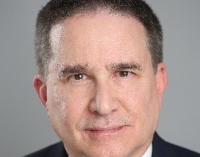Viewing this content requires a Basic (Free) Membership or better. You are not currently logged in. If you have an account, you may login below, or use the “Log In”
Basic Members

The relative quickness of this one-two shot from the District Courts suggests an obvious flaw in the new Rule.

It’s clear that certain areas of government oversight are more vulnerable now that Chevron no longer rules the land. The prospect of this may excite opponents of excessive regulation.

Among the consequences that can follow from the Supreme Court’s overruling Chevron is yet more situations for which an answer to a question of law won’t be one bright-line rule made by a government agency.

It’s too easy for plan sponsors to get lost in the weeds when dealing with plan minutia. Yes, “the buck stops here” reality can overwhelm many. Delegation is the key. It’s also the Achilles Heel. This is where the magic word emerges.

Once the communications link is broken, it’s fair to say the participant is lost or missing. Plan sponsors need a second set of procedures in this case.

“Industry participants also argue that the rule transforms one-off transactions into fiduciary relationships in violation of the common law, but the common law of the states is divided on this, and there is a need for a federal standard regulating investment advice fiduciaries.”

Viewing this content requires a Basic (Free) Membership or better. You are not currently logged in. If you have an

Plan sponsors ought naturally to know how the plan addresses the needs of their business, but do they really know how to tweak the plan to improve outcomes?










Big Day Coming: New Book Coming Out On August 15, 2024!
Viewing this content requires a Basic (Free) Membership or better. You are not currently logged in. If you have an account, you may login below, or use the “Log In”